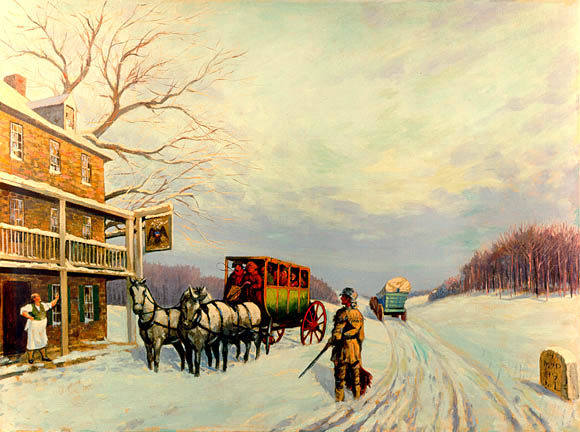114 Political Conditions in America (1795)

In America, the expenses of the government are very much less in proportion to wealth and numbers than those of any nation in Europe.
There is no land tax among the national revenues nor is there any interior tax or excise upon food, drink, fuel, lights, or any native or foreign manufacture or native or foreign production except a duty of about four pence sterling upon domestic distilled spirits. The greatest part of the public burdens are paid by an import duty on foreign goods which being drawn back on exportation it remains only on what is actually used and is in that view the lowest in the world. Trade has been encouraged by a drawback of all the import duty on foreign goods when they are exported, excepting only a very few commodities of a particular nature which are not desired to be much imported into or consumed in the United States.
A national mint is established under the direction of the ablest practical man in the arts and sciences which America affords, David Rittenhouse. It is provided by law that the purity and intrinsic value of the silver coins shall be equal to that of Spain and of the gold coins to those of the strictest European nations. The government of the United States foregoes all profit from the coinage. This is certainly an honest, a politic, and wholesome forbearance but America is the first that has adopted it. The banks established in the several cities of Philadelphia, New York, Boston, Baltimore, Charleston, Alexandria, etc. divide a profit of seven and a half to eight and a half per cent per annum at present, which is paid half-yearly. The interest of the public debt of the United States is paid every quarter of a year with a punctuality absolute and perfect. There is no tax on property in the funds and banks.
With respect to the state of politics in America, they have among them a few suspected royalists exclusive of some Englishmen settled in the great towns whom the Americans regard as unreasonably prejudiced against their government and infected with a kind of maladie du pays [homesickness]. The rest of the Americans are republicans but of two classes: the one leaning to an extension rather than a limitation of the powers of the legislative and executive government. Or in other words, rather leaning to British than to French politics; inclining to introduce and extend the funding, the manufacturing, and the commercial systems. In this class rank almost all the executive officers of government with the President at their head, the majority of the members of the senates, and the greatest part of the opulent merchants of the large towns. This party is denominated the Federalists partly because they were the chief introducers and supporters of the present federal government and the constitution of 1787 and partly from the very ingenious series of letters in favor of that constitution by Mr. Hamilton, termed “The Federalist”.
The other party are called “Anti-federalists”, not because they are adverse to a federal government or wish like the French for a republic, one and indivisible, but in contradistinction rather to the denomination of the other class. The Anti-federalists at the time when the present American constitution was in agitation were hostile to the extensive powers given to government and wished for more frequent returns to the people of the authority they were to delegate to their trustees in office. This party objects to the salaries given to the officers of government as too large, to the state and distance assumed by some among them. Not even excluding the President Washington whose manners and mode of living, cold, reserved and ceremonious as is said, have tended in some degree to counteract the effect of his great abilities and eminent services. The Anti-federalists also rather lean to the French theory though not to the French practice of politics. And they are averse to what they deem the monopolizing spirit and insulting arrogance of superiority in England. This spirit of animosity against Great Britain has been prodigiously increased by the part she is supposed to have taken in fomenting the Indian war, in exciting the hostilities of the Algerians, in seizing the ships and obstructing the commerce of the American merchants, in refusing or neglecting to give up the posts upon the lakes or to make reparation for stolen negroes. The conduct of the British Court has certainly given strength to the Anti-federal party among whom may now be ranked the majority of the people and the majority of the houses of representatives.
It will be easy to conjecture from the preceding account that the Federalists are the ins and the Anti-fedefalists the outs of the American government, and this is in a great degree but not universally true.
Source: William Winterbotham, An Historical, Geographical, Commercial, and Philosophical View of the American United States (1795) III, 302-336. https://archive.org/details/toldcontemporari03hartrich/page/296/mode/2up
